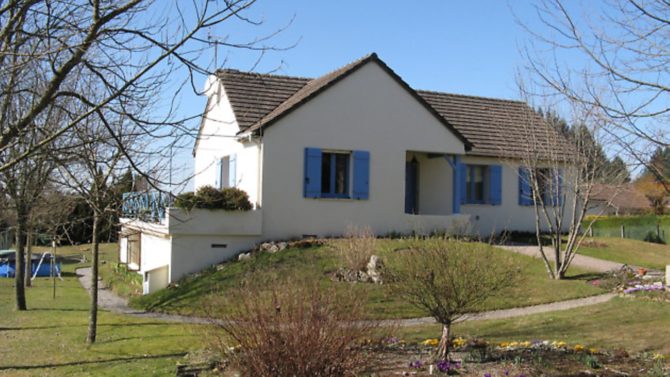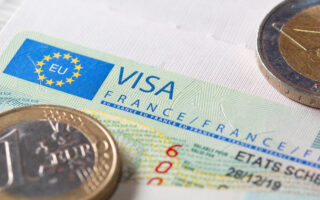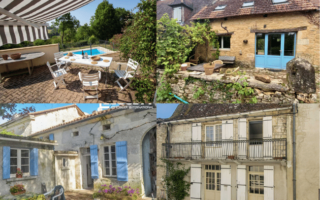Capital gains tax

Florence Richards takes a look at the recent changes in capital gains tax for second homes in France
As many people who own a French property will have experienced, buying a property in France is not always a straightforward process.
Buying a French property requires time, investment and a lot of preparation. Likewise, the sale of a French property requires careful planning and anticipation. One of the most important aspects of the sale that can be easily overlooked by sellers is their tax position.
Ascertaining your capital gains tax liability in advance of the sale and, as far as possible, taking steps to minimise it, has become more important in the last 15 months as successive French governments have significantly increased the rates of taxation on gains. French residents as well as non-residents are affected by these new rules.
I have concentrated in this article on the impact of these new rules on those who are non-residents and have a holiday home in France which they now intend to sell.
selling a property
Let us take the example of John, a UK resident, who bought a little holiday cottage near Perpignan in April 2002 for €120,000. John renovated it substantially and let it out for a few weeks each year while he was not in occupation to meet the maintenance costs. John has decided to sell the cottage and use the proceeds to fund his retirement.
Now, most of you will know the French tax man is the first to levy his dues. To ensure that John does not forget the French Trésor Public, the notaire has a duty to collect the tax directly from the sale proceeds. Should the tax not be collected at source, the notaire, who is ultimately reponsible for this, will not complete the sale.
If the sale price exceeds €150,000, the French authorities will want a further guarantee of payment of the tax and require John to appoint a tax representative. The legislation allows John to appoint the tax representative of his choice. This could be one of his friends or a relative.
However, his appointee will have to be a French resident and provide sufficient financial guarantees and creditworthiness to be accredited by the tax authorities. In practice, most sellers appoint a professional tax representative who will charge a fee directly proportional to the sale price. John should budget for this additional cost.
Let us imagine that John sells his cottage in May 2013, making a taxable gain of €100,000.
The rules used to be simple: a taper relief of 10% per year of ownership after five years of holding, so that the gain was fully exempt if the sale took place after 15 years of ownership. For those who sold their property before 15 years, the taxable gain – after taper relief – was taxed at 19%. John would have benefited from a 60% taper relief on his gain (sale after 11 years of ownership) so that his taxable gain would have been reduced to €40,000, leading to a French capital gains tax liability of €7,600.
Unfortunately for John, since 1 February 2012 the taper relief rules have been amended so that full exemption is now granted only after 30 years of ownership. Gains on properties sold within five years of their purchase remain fully taxable as before.
However, the rate of tapering relief is reduced to only 2% per year of ownership for properties sold within 18 years of their acquisition. The relief increases to 4% for properties owned for between 18 years and 25 years and then 8% for years of ownership beyond 25 years.
For example, the gain on a property sold after 15 years of ownership benefits from a reduction of only 20% of the gain today. Likewise, the gain on a property sold after 25 years of ownership is exempt for only 60%.
So John benefits from a taper relief on his taxable gain of only 10%, so that his taxable gain increases to €90,000 and his basic French CGT liability at 19% has risen to €17,100.
social charges
In addition, since August 2012 all taxable gains made on the sale of French properties by non-residents are subject to the French social charges at a cumulative rate of 15.5%.
Once again, these charges are levied at the same time, and under the same conditions, as the capital gains tax. John’s tax liability has been increased by a further €13,950.
You can imagine John’s disappointment to find out that within only eight months, his French tax liability has jumped from €7,600 to €31,050. He will be even more disappointed to find out that his liability in 2013 will be even higher.
Indeed, the French government announced at the end of last year the introduction of an additional tax on gains exceeding €50,000 for sales taking place from 1 January 2013. This additional tax applies at a progressive rate which starts at 2% for gains between €50,001 and €100,000, with an additional point for every additional €50,000 of taxable gain and up to 6% for gains exceeding €250,000. Some tapering relief has been introduced though to avoid cliff-edge effect.
In John’s case the new tax will apply at a rate of 2% (gain of €100,000), that is a further increase of his French tax liability by €2,000.
If John’s taxable gain had been €105,000, he would have reached the next taxation threshold at 3%. Tapering relief would have applied so that his additional liability would have been limited to €2,650.
limiting your liability
However, this bad news needs to be tempered as John is a cautious man. He had anticipated the sale of his French property and managed to limit his tax bill by careful planning.
As explained, the property was only a secondary residence for John. Therefore he cannot claim the main residence exemption.
However, if John was a French resident for two consecutive years in the past, he will be able to claim the exemption granted to non-residents on the first sale of a French property of which he had the exclusive use and occupation for the last couple of years.
John’s tax adviser will have advised him to ensure that he can provide solid evidence of his French residence to the authorities. His tax adviser will also have advised him not to let the property for the last two years before the sale so that the exemption can apply.
John will also reduce his taxable gain by ensuring that all expenditure allowable under French law has indeed been taken into account. Notably, French law allows John to deduct most of the important renovation costs he incurred so long as he has kept all related invoices and proof of payment.
Likewise, so long as John can provide evidence of these costs, he can deduct all acquisition costs such as notaire’s and estate agent’s fees. John had indeed followed his tax adviser’s advice and kept all records of costs, building work quotes, invoices and evidence of payment. He may find out that his taxable gain is not that much after all.
Should he not have kept all these records, building costs would have been capped at 15% of his purchase. The acquisition costs would also be capped.
uk rules
This example focuses on the French capital gains tax rules. But John will also have been advised of his tax obligations in the UK. Indeed, as a UK resident at the date of sale, the gains will also have to be computed under UK tax rules and the gain will be taxed at 18% and 28% depending on John’s level of income in the tax year.
Part of the tax paid in France is recoverable in the UK. The double tax agreement between France and the UK allows John to claim a foreign tax credit with HMRC, which will offset the French capital gains tax liability against his UK CGT liability.
John should certainly have been advised at the date of purchase to make an election in the UK for his French property to be deemed as his private principal residence for a period of time.
This election, if done within two years of first using the property as a residence, would give John a relief for the last three years of ownership and the period during which the election was on the property, not to mention the period of letting, thereby reducing his UK capital gains tax bill.
Thanks to John’s careful tax planning when he purchased his French property, his total liability may not look so bad after all. n
Florence Richards is a French property and tax adviser at Furley Page Solicitors
Tel: 0845 603 1057
www.furleypage.co.uk
Share to: Facebook Twitter LinkedIn Email


